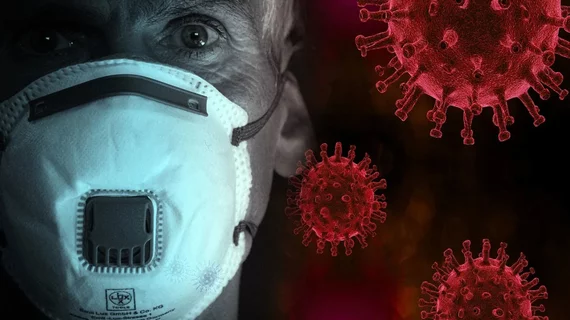Advanced imaging IDs antibody for potential COVID-19 treatment
Organizations around the world are working tirelessly to create a vaccine for the coronavirus. And one group of international researchers is using imaging to do their part, identifying microscopic structures that may be key to a preventative or therapeutic treatment against the disease.
Davide Corti, PhD, with Vir Biotechnology in Switzerland and David Veesler, PhD, with the University of Washington in Seattle are leading that team, and have discovered that neutralizing antibodies taken from past SARS survivors could be used to block SARS-CoV-2 and other similar coronaviruses from infiltrating host cells within the body.
Using both x-ray crystallography and cryo-electron microscopy, the group pinpointed eight antibodies that can bind to the SARS-COV-2 spike glycoprotein—a pyramid-shaped structure that helps the virus enter into host cells. After further testing, the group found one specific antibody—S309—that successfully inhibits SARS-CoV-2.
“We are very excited to have found this potent neutralizing antibody that we hope will participate in ending the COVID-19 pandemic,” Veesler said in a statement. Such antibodies can be mass produced and administered to people whose immune system doesn’t manufacture them naturally, or be delivered through a vaccine to help the body create them on its own.
The entire research paper was published online, May 18 in Nature. Vesseler and Corti’s research is funded by the National Institutes of General Medical Sciences, National Institute of Allergy and Infectious Diseases, a Pew Biomedical Scholars Award, and a Burroughs Welcome Fund award.

